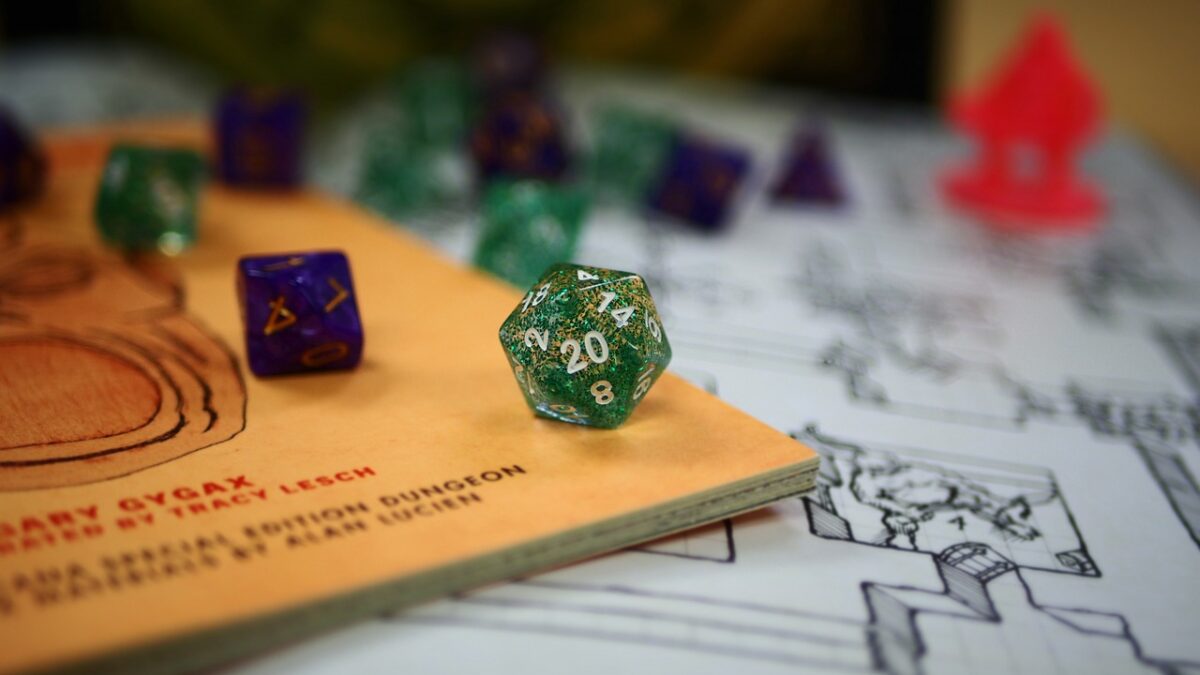
Imagine you’re playing Dungeons & Dragons and your dungeon master sadly informs you that the goblin shaman you’re fighting finally figured out how to pronounce “Fireball!” Now your character needs to make a dexterity saving throw to avoid being immolated. Then imagine that the GM grabs a d20 and says “All right, let me roll that for you.” How would you react? Would you object? Would you reach for your own die? Would you dive across the table to intercept their roll?

Most players probably prefer to make their own attack rolls, saving throws, skill checks, and other throws of the dice in tabletop role-playing games. Why, though? We know rationally that the results of a die rolled by the DM in the open is just as random as one rolled by us. There are even times where it makes sense for the DM to roll for the player behind a screen, as in the case of rolling to detect traps. Rolling a 2 and hearing “You find no traps” has very different implications than rolling a 19 and hearing the same. In the former case, a player might suspect that they just missed the traps because of a bad roll, but in the latter she can be confident of the situation because of the high roll. So it makes sense for the DM to roll privately and just inform the player of the results. Yet players have balked at this suggestion at every table I’ve been at where it was proposed. We want to roll our own dice.
This has a lot to do with what psychologists call sense of agency, which relates to our desire to feel like we can exert control over the world, even in the case of random events like slot machine spins or die rolls. Or how we think we can shape events driven by long chains of causality too complex to understand. We tend to overestimate our ability to influence those events and will make up the wildest reasons why and resist anything that makes those reasons less convincing. In my book, The Psychology of Dungeons & Dragons, I have a whole chapter on the psychology of luck as it pertains to die rolls. Part of that deals with this desire for a sense of agency:
If you think like this, you’re not alone. In one study, researchers increased people’s illusion of control by having them remember a time when they were in charge of a situation or by telling them that they were going to be role-playing a manager dealing with a subordinate.(Fast, et al., 2009). Others were told to remember a time when they had someone lording control over them or told they were going to be role-playing a subordinate dealing with their manager. Everyone was then told that they would win a cash prize if they predicted the result of a 1d6 roll. Furthermore, they were given the option of either rolling the die themselves or letting the experimenter roll it. The researchers found that those primed or instructed to think of themselves as in control tended to want to roll the dice themselves so that they could exert that control and win their reward. Whenever we grab the dice for ourselves, say a little mantra meant for luck, or pick the “good” die to roll something important, we’re wrapping ourselves up in the illusion of control.

This desire for agency can also compel us to do and believe some pretty irrational things. We may have “good” dice that we save for all-important death saves. We may put our dice in a little box with “DICE JAIL” scribbled across it if they roll too many critical failures. Blowing on dice for luck is an old tradition, and some research even shows that people tend to throw dice harder when they need a high number and more softly when they need a low number (Henslin, 1967).
But none of those things affect the dice. You know they don’t. I know they don’t. But I still put my dice in jail for failing me. Because what we do here is part of a psychological immune system that lets us maintain hope, positivity, and a positive outlook. Because the universe is complex and uncaring. It doesn’t care if we miss that dex saving throw and we have to take 28 fire damage. So it feels good to think that we somehow influenced the outcome when it turns out good and we tend to not remember the times we failed (c.f., the confirmation bias).
And, perhaps most importantly, feeling a sense of agency when we grab the dice for ourselves can lead us to feel more engagement with the game instead of feeling like we are passively accepting outcomes doled out by someone else. Which is not a bad reason to do it.
REFERENCES
Fast, N. J., Gruenfeld, D. H., Sivanathan, N., & Galinsky, A. D. (2009). Illusory control. Psychological Science, 20(4), 502–508. https://doi.org/10.1111/j.1467-9280.2009.02311.x
Henslin, J. (1967). Craps and magic. American Journal of Sociology, 73(3), 316–330. https://doi.org/10.1086/224479